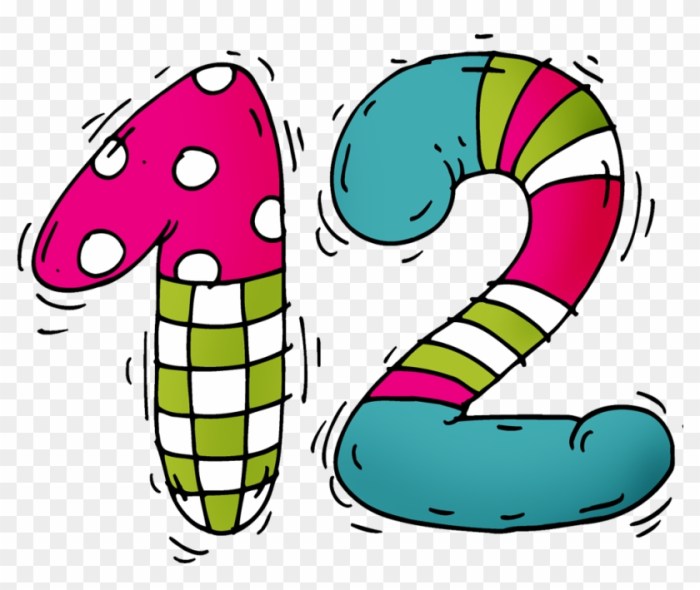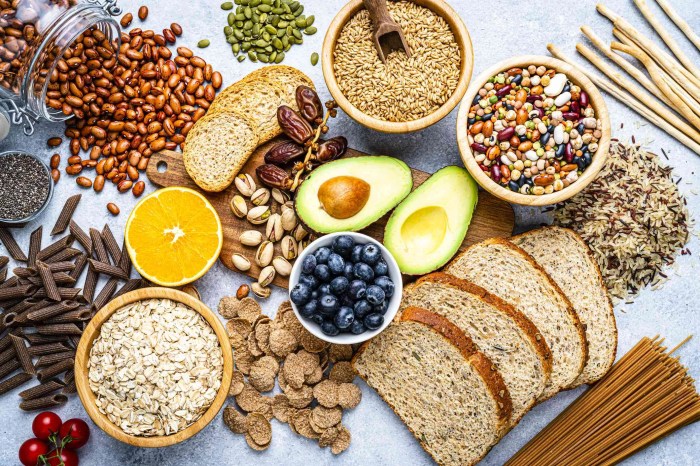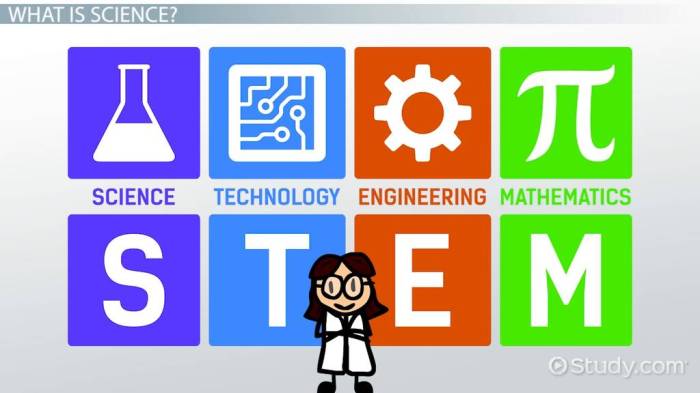Ways to improve your memory are surprisingly diverse and accessible. This exploration dives deep into understanding memory, from its biological underpinnings to practical techniques. We’ll uncover effective strategies, examine lifestyle factors, and discuss the impact of technology on memory. Prepare to unlock the potential of your mind and discover lasting memory improvements.
From understanding the different types of memory, like short-term and long-term, to exploring techniques like mnemonics and visualization, this guide provides a comprehensive overview. We’ll also delve into the role of nutrition, exercise, sleep, and stress management in optimizing cognitive function and memory retention. Discover how learning styles and active recall can amplify your memory capabilities. Plus, we’ll explore the evolving role of technology in enhancing memory, offering strategies for managing digital information effectively.
Ultimately, you’ll gain practical tips for maintaining memory health and improving your memory in everyday situations, like studying for exams or recalling important dates.
Understanding Memory

Our brains are incredible information processors, constantly encoding, storing, and retrieving memories. Understanding the different types of memory, the biological processes involved, and the factors that influence memory is crucial for appreciating how our minds work and for developing strategies to enhance our cognitive abilities. This exploration will delve into the intricacies of memory, providing insights into its nature and how we can nurture its potential.Memory is a complex cognitive process that encompasses various types, each serving a unique function.
These different types work together to allow us to learn, remember, and adapt to our environment.
Types of Memory
Memory can be broadly categorized into different types, each with distinct characteristics and functions. Short-term memory, also known as working memory, holds information temporarily for immediate use. Long-term memory, on the other hand, stores information over extended periods, from minutes to a lifetime. These types differ in their capacity, duration, and the processes involved in encoding and retrieval.
- Short-Term Memory (Working Memory): This system temporarily holds and manipulates information needed for tasks like reasoning, learning, and problem-solving. It’s like a mental scratchpad, allowing us to hold and process information for a brief period. Its capacity is limited, typically holding around seven items plus or minus two, and its duration is short, lasting only seconds without rehearsal.
- Long-Term Memory: This vast repository stores information over extended periods. It encompasses memories of events, facts, and skills. Its capacity is essentially limitless, and its duration can extend from minutes to a lifetime. Different types of long-term memory exist, including declarative memory (explicit memories) and non-declarative memory (implicit memories). Declarative memory further divides into episodic and semantic memory, while non-declarative memory encompasses procedural memory, priming, and conditioning.
Biological Processes of Memory
The formation and retrieval of memories involve intricate biological processes within the brain. These processes are complex and not fully understood, but key structures like the hippocampus, amygdala, and various cortical areas play critical roles.
- Encoding: Information is transformed into a neural code that can be stored in memory. This process is crucial, as it dictates how well the information will be retained.
- Storage: The encoded information is physically stored in the brain. This involves the strengthening of neural connections, or synapses, between neurons. Repeated activation of these pathways strengthens the memory trace.
- Retrieval: Memories are accessed and brought back into conscious awareness. This process involves reactivation of the neural pathways associated with the memory.
Factors Influencing Memory Capacity and Retention
Several factors can impact our memory capacity and the ability to retain information. Understanding these factors is essential for developing effective memory strategies.
- Attention and Focus: Paying close attention to the information being learned is critical for effective encoding. Distractions can hinder the process and reduce memory retention.
- Rehearsal and Repetition: Actively reviewing and repeating information enhances memory consolidation and strengthens memory traces.
- Sleep: Sleep plays a vital role in memory consolidation. During sleep, the brain processes and strengthens the memories formed during the day.
- Stress and Anxiety: High levels of stress and anxiety can impair memory function. Stress hormones can interfere with the encoding and retrieval processes.
Memory Encoding
Encoding is the process of transforming sensory information into a neural code that can be stored in memory. Different encoding strategies can influence the effectiveness of memory retention.
- Visual Encoding: Encoding information using visual imagery. Creating mental pictures can help in remembering visual information.
- Acoustic Encoding: Encoding information using sounds. Repeating information out loud can enhance acoustic encoding.
- Semantic Encoding: Encoding information based on its meaning. Relating new information to existing knowledge enhances semantic encoding.
Factors Affecting Memory
Various factors can affect memory, including stress, sleep deprivation, and age. These factors influence different aspects of memory, such as encoding, storage, and retrieval.
- Stress: Chronic stress can impair memory by affecting the hippocampus, a brain region crucial for memory formation. High levels of stress hormones can interfere with encoding and retrieval processes.
- Sleep Deprivation: Lack of sleep disrupts the memory consolidation process, hindering the transfer of information from short-term to long-term memory. This can negatively impact learning and recall.
- Age: Memory functions can change with age. Age-related changes can affect different types of memory, particularly episodic memory. These changes are often gradual and can be mitigated through cognitive stimulation and healthy lifestyle choices.
Effective Memory Techniques
Unlocking your memory’s potential is more than just rote memorization; it’s about understanding and applying effective strategies. This journey explores various techniques to improve your memory, from simple mnemonics to more sophisticated methods like the method of loci. We’ll delve into how these techniques work, and how you can tailor them to your specific learning style.Understanding the intricacies of how our brains encode and retrieve information is crucial for memory enhancement.
By actively engaging with the material and employing strategies that suit your cognitive style, you can significantly boost your ability to retain and recall information.
Memory Improvement Strategies
Different strategies cater to diverse learning styles and memory types. Some are simple and quick to implement, while others require more focused effort. Effective use of these strategies will help you build a stronger memory foundation.
- Mnemonics: Mnemonics are memory aids that use vivid imagery, rhymes, or patterns to connect information with something memorable. Acronyms, acrostics, and mnemonics are common examples. Their effectiveness stems from the brain’s ability to associate and retrieve information more easily through these cues.
- Visualization: This technique involves creating vivid mental images to represent the information you need to remember. The more detailed and emotional the image, the better the recall. Visualizing connections between pieces of information strengthens memory pathways.
- Spaced Repetition: This method involves reviewing information at increasing intervals. The brain strengthens memory traces by revisiting the material at progressively longer intervals. This strategy is particularly effective for long-term retention.
Comparing Memory Techniques, Ways to improve your memory
A structured comparison of various memory techniques reveals their unique strengths and weaknesses.
| Technique | Strengths | Weaknesses |
|---|---|---|
| Mnemonics | Easy to learn and apply, aids in creating strong associations, enhances recall. | Effectiveness varies depending on the complexity of the material, may not be suitable for abstract concepts. |
| Visualization | Creates strong mental images, facilitates recall, especially for spatial information. | Requires active imagination, can be challenging for abstract or complex material, may be less effective for auditory information. |
| Spaced Repetition | Promotes long-term retention, strengthens memory traces, effective for large amounts of information. | Requires consistent effort, may not be suitable for immediate recall, demands discipline and planning. |
The Method of Loci
The Method of Loci, also known as the memory palace technique, is a powerful mnemonic device. It leverages spatial memory by associating information with specific locations in a familiar environment, often a house or a street. This technique is particularly useful for memorizing lists, sequences, or even entire stories.
Boosting brainpower is key, and one way to do that is by focusing on memory improvement techniques. Remembering things better can be achieved through various methods, from spaced repetition to mindfulness. Interestingly, companies like 5 companies who understand that employees deserve recognition demonstrate that acknowledging employee achievements, a crucial aspect of work culture, can significantly impact performance and job satisfaction.
Ultimately, incorporating these types of positive reinforcement techniques into your daily routine can enhance your memory retention and overall cognitive function.
Creating Memory Palaces
Constructing a memory palace involves visualizing a familiar space. Each location within the space serves as a “peg” to which you attach a piece of information. The more vivid the imagery, the more effective the technique. Visualize objects, people, or actions associated with the items you want to remember.
- Choose a Location: Select a familiar and well-understood environment, like your home or workplace. The more detailed and vivid the imagery of the location, the better.
- Create a Mental Tour: Mentally walk through the location, marking specific places to anchor pieces of information. Each spot should be easily distinguishable.
- Visualize the Information: Associate each item to be memorized with a specific object or scene in the location. The more bizarre and memorable, the better.
- Practice Recall: Mentally revisit your memory palace to retrieve the stored information. This reinforces the associations.
The Feynman Technique
The Feynman Technique is a powerful learning method for understanding and retaining complex concepts. It’s based on the idea that if you can explain a concept clearly, you truly understand it.
- Explain the Concept: Attempt to explain the concept to someone else (or yourself) in simple terms. Identify gaps in your understanding as you explain.
- Simplify the Explanation: If your explanation is too complex, break down the concept into simpler components. Use analogies and examples to illustrate your points.
- Identify Gaps: Identify any points where you struggle to explain the concept clearly. These are areas where you need further study.
- Fill the Gaps: Seek out resources to address the gaps in your understanding. Return to step one and refine your explanation.
Lifestyle Factors for Memory Enhancement

Taking care of your overall well-being is crucial for maintaining a healthy mind, including a sharp memory. This involves adopting a holistic approach that encompasses various lifestyle aspects, from diet and exercise to stress management and sleep. A balanced and active lifestyle directly impacts brain function and memory retention.Understanding the interplay between lifestyle choices and cognitive health is paramount.
By making conscious decisions about nutrition, physical activity, sleep patterns, and stress management, you can actively support your brain’s ability to learn, retain, and retrieve information. This proactive approach allows for long-term memory improvement and overall cognitive well-being.
Nutrition and Brain Health
Proper nutrition is essential for optimal brain function and memory. The brain requires specific nutrients to fuel its processes and support neuronal connections. A diet rich in brain-boosting foods can enhance cognitive performance and memory retention.
- A variety of fruits and vegetables provide essential vitamins, minerals, and antioxidants that protect brain cells from damage. Cruciferous vegetables, berries, and leafy greens are particularly beneficial.
- Whole grains offer complex carbohydrates that provide sustained energy for the brain. They are also rich in fiber, which aids in digestion and nutrient absorption, further supporting brain health.
- Lean proteins, such as fish, poultry, and beans, are essential for building and repairing brain tissues. Omega-3 fatty acids, abundant in fatty fish like salmon and tuna, are crucial for brain structure and function.
- Healthy fats, found in avocados, nuts, and seeds, provide crucial building blocks for brain cell membranes and support cognitive function.
Foods Beneficial for Memory Improvement
Certain foods are particularly beneficial for memory improvement due to their specific nutrient content.
- Fatty fish, such as salmon and tuna, are excellent sources of omega-3 fatty acids, crucial for brain health and memory function.
- Berries, rich in antioxidants, help protect brain cells from damage and promote healthy cognitive function.
- Leafy green vegetables, like spinach and kale, provide essential vitamins and minerals that support brain health.
- Nuts and seeds offer healthy fats and various nutrients that support brain structure and function.
- Eggs are a good source of choline, a nutrient important for brain development and function.
Regular Exercise and Cognitive Function
Physical exercise plays a significant role in enhancing cognitive function and memory. Physical activity increases blood flow to the brain, delivering more oxygen and nutrients, which are essential for optimal brain function.
- Regular exercise improves memory and learning abilities by promoting the growth of new brain cells and strengthening existing connections.
- Physical activity helps to regulate stress hormones, reducing their negative impact on cognitive function and memory.
- Aerobic exercise, in particular, has been shown to enhance various cognitive functions, including memory.
Sufficient Sleep and Memory Consolidation
Adequate sleep is vital for memory consolidation, the process by which short-term memories are transformed into long-term memories. During sleep, the brain actively processes and stores information learned throughout the day.
- Sufficient sleep helps to strengthen neural connections, making it easier to retrieve memories.
- Lack of sleep disrupts memory consolidation, leading to difficulty recalling information.
- Aim for 7-9 hours of quality sleep each night to support optimal memory function.
Stress Management and Memory
Chronic stress can negatively impact memory and cognitive function. Stress hormones can interfere with the brain’s ability to form and retrieve memories. Developing effective stress management techniques is essential for preserving cognitive function.
- Stress-reducing activities, such as meditation, yoga, and deep breathing exercises, can help to regulate stress hormones and promote relaxation.
- Prioritizing relaxation and downtime can significantly reduce stress levels, leading to improved memory.
- Seeking support from friends, family, or a therapist can be helpful in managing stress and its impact on memory.
Learning and Memory
Learning and memory are intricately linked. Learning involves acquiring new information and skills, while memory is the process of encoding, storing, and retrieving that information. Understanding this connection is crucial for optimizing both learning and memory performance. Effective learning strategies often directly enhance memory retention and recall.Effective learning techniques often depend on understanding the nuances of individual learning styles and how they influence memory.
A nuanced approach to learning can significantly impact how well we retain and recall information. This section delves into the specific strategies that bridge the gap between learning and memory.
The Connection Between Learning Styles and Memory
Different individuals learn in different ways. Some excel at visual learning, others through auditory input, and some through hands-on experiences. Recognizing and adapting to these individual differences in learning styles is key to improving memory retention. Understanding your own learning style can help you select learning methods that best suit your cognitive preferences.
- Visual learners often benefit from diagrams, charts, and images. Visual aids can help encode information in a memorable format, leading to better recall. For instance, creating mind maps to organize complex information can be particularly beneficial for visual learners. Visual learning often translates into a more concrete and easily retrievable memory trace.
- Auditory learners often find lectures, discussions, and recordings helpful. Repeating information aloud or listening to recordings can enhance memory. Using mnemonics, which involve associating words or phrases with sounds, can also be effective for auditory learners.
- Kinesthetic learners thrive on hands-on activities and physical engagement. Experimenting with a subject, building models, or acting out scenarios can lead to stronger memory traces. A kinesthetic approach emphasizes physical interaction with the material, which often translates into deeper learning and more vivid memories.
Active Recall Techniques for Enhanced Memory
Active recall involves retrieving information from memory without relying on external cues. This technique strengthens memory by forcing the brain to work harder to access the information. Actively retrieving information is more effective than passively rereading material.
- One effective active recall technique is the “testing effect.” This involves regularly testing your knowledge through quizzes, flashcards, or practice questions. This approach helps consolidate information in long-term memory.
- Another technique is the “Spaced Repetition System.” This method involves reviewing information at increasing intervals. Reviewing information after longer gaps helps ensure that the material is properly encoded and stored in long-term memory.
Interleaving for Enhanced Learning and Memory
Interleaving involves mixing different topics or concepts during study sessions. This approach strengthens memory by forcing the brain to discriminate between similar concepts, thus enhancing encoding and retrieval. By mixing different materials, you’re preventing the creation of unhelpful associations that might hinder future recall.
- For instance, if you’re learning about different historical periods, instead of studying all of one period at once, interleave your study sessions to include parts of different periods. This helps to separate and solidify the knowledge associated with each period.
- By mixing up topics, the brain works harder to distinguish between different concepts, making the retrieval process more efficient.
Applying These Concepts in Everyday Life
Learning and memory strategies can be applied to various everyday situations. From remembering grocery lists to preparing for exams, these techniques can significantly enhance your ability to retain and retrieve information.
Boosting your memory can be surprisingly linked to a tidy home! Creating a clutter-free environment, like using smart home gadgets from tidy with technology 6 gadgets to keep your home clean and comfy , can actually help your brain function better. A clear space allows your mind to focus more effectively, making it easier to retain information and improve your memory overall.
- For remembering grocery lists, try using visual imagery or associating items with specific locations in your house. Visual learners may benefit from a mental image of the shopping list laid out in the grocery store.
- When studying for exams, use active recall methods, like creating flashcards and self-testing, and interleave your study sessions to cover different subjects.
Memory and Technology
The digital age has profoundly impacted how we interact with information and, consequently, how our memories function. We’re constantly bombarded with data, from social media updates to emails and news alerts. This constant influx of information can lead to both enhanced memory capabilities and a potential for information overload, significantly affecting our cognitive processes. Understanding the interplay between technology and memory is crucial for optimizing our cognitive well-being in today’s digital landscape.Digital tools offer unprecedented opportunities to enhance memory, but this potential is only realized through conscious strategies.
Effective management of digital information is key to preventing information overload and maximizing the benefits of technology for memory improvement. This involves not only utilizing the tools but also understanding how to integrate them into our daily routines and cognitive habits.
Impact of Information Overload
Information overload, a common consequence of the digital age, can negatively impact memory. The sheer volume of information vying for our attention can lead to difficulty focusing, reduced cognitive capacity, and diminished ability to process and retain information. This can manifest as difficulty recalling specific details or a general sense of mental fog. Strategies for managing this overload are essential for optimizing memory function.
Digital Tools for Memory Enhancement
Digital tools offer powerful tools for memory improvement. Note-taking apps, for example, provide a structured and organized way to capture and review information. Flashcards and spaced repetition software can reinforce learning and improve recall by presenting information at optimal intervals. These tools leverage technology to enhance cognitive functions.
Using Digital Tools for Memory Improvement
Implementing digital tools for memory improvement requires a strategic approach. Choose note-taking apps that allow for structured organization, such as hierarchical note-taking or tagging. When using flashcards, utilize spaced repetition software to optimize learning. This approach ensures that information is reviewed at intervals that maximize retention. Consider using digital tools like mind mapping software to visualize connections between ideas, aiding in comprehension and memory.
Managing Digital Information to Avoid Overload
Managing digital information is essential for avoiding overload. This involves techniques such as setting time limits for checking social media or emails, and actively deleting or archiving unnecessary files. Regular decluttering of digital spaces can significantly improve cognitive clarity and memory function.
Effective Strategies for Managing Digital Information
Developing effective strategies for managing digital information requires a multifaceted approach. Create clear folders and file structures to organize digital documents. Utilize search functions effectively to quickly locate information. Set boundaries for digital usage, and schedule dedicated times for checking social media or emails. These strategies create a more organized and less overwhelming digital environment, improving memory function.
For example, categorizing emails into specific folders (work, personal, etc.) prevents them from accumulating and becoming overwhelming.
Memory Improvement in Specific Scenarios: Ways To Improve Your Memory
Unlocking your memory’s potential isn’t just about general strategies; it’s about tailoring techniques to specific situations. From acing exams to remembering faces, understanding how to adapt your memory tools can significantly boost your ability to recall information effectively. This section delves into practical strategies for optimizing memory in various contexts.Specific memory improvement strategies can dramatically enhance performance in various situations, such as during exams, learning new languages, or navigating social interactions.
Tailoring techniques to these specific contexts maximizes memory effectiveness.
Exam Preparation Strategies
Effective exam preparation hinges on active recall and spaced repetition. Don’t passively reread notes; instead, actively test yourself by recalling information without looking. Spaced repetition, where you review material at increasing intervals, strengthens memory over time. Flashcards are a useful tool for this purpose, allowing for focused review and active recall.
Language Learning Techniques
Language learning benefits from mnemonic devices and immersion. Visualizing words or phrases with images or connecting them to personal experiences can aid recall. Surrounding yourself with the language through music, movies, or conversation deepens comprehension and strengthens memory. Immersion environments facilitate natural language acquisition, thus strengthening memory retention.
Ever wanted to supercharge your memory? It’s not just about rote memorization; it’s about actively engaging your mind. Think about how boosting your creativity might also improve your recall. For example, by trying out new approaches to problem-solving, as outlined in this fascinating article on how creativity isn’t a fixed trait but something you can cultivate daily creativity isnt talent you can actually gain doing these 3 things daily , you’re essentially strengthening neural pathways.
This process, in turn, makes it easier to store and retrieve information, making remembering things much more efficient. So, while exploring your creative side, you’re also fine-tuning your memory skills.
Remembering Names and Faces
Remembering names and faces requires focused attention and association. When meeting someone, make a conscious effort to repeat their name and link it to a visual cue or a characteristic of their appearance. This process of association strengthens the memory trace. Practicing this method consistently can significantly improve your ability to recall names and faces in social situations.
Remembering Important Dates and Events
For remembering important dates and events, consider using mnemonic devices or calendar systems. Connecting a date or event to a memorable image or story can enhance recall. Employing a calendar, planner, or digital reminders can also be instrumental in ensuring you don’t miss important dates.
Improving Memory in Social Situations
Social memory enhancement relies on active listening and engagement. When having conversations, focus on actively listening to the person, not just waiting for your turn to speak. Try to find common ground or connections to aid memory. Also, make an effort to use the person’s name throughout the conversation. This enhances memory and fosters a more personal connection.
Memory Improvement Strategies Table
| Scenario | Strategy | Example |
|---|---|---|
| Exam Preparation | Active Recall, Spaced Repetition | Testing yourself with flashcards, reviewing notes at increasing intervals. |
| Language Learning | Mnemonic Devices, Immersion | Visualizing words with images, using the language in a natural setting. |
| Remembering Names/Faces | Association, Focused Attention | Linking a name to a distinctive feature of the person’s appearance. |
| Remembering Dates/Events | Mnemonic Devices, Calendars | Connecting a date to a memorable story, using digital reminders. |
| Social Situations | Active Listening, Engagement, Naming | Focusing on what the person is saying, using their name in conversation. |
Tips for Maintaining Memory Health
Maintaining a sharp memory throughout life is a goal many strive for. It’s not just about remembering names or dates; it’s about preserving cognitive function and enjoying a vibrant mind as we age. This involves adopting a multifaceted approach that encompasses lifestyle choices, mental exercises, and a proactive attitude towards brain health. Strategies for enhancing memory function are not just about memorization but also about nurturing a healthy brain that can adapt and learn.Effective memory maintenance is a continuous process that requires dedication and effort.
It’s not a one-time fix but a journey of incorporating healthy habits into your daily routine. By embracing lifelong learning, stimulating activities, and mental exercises, you can strengthen your cognitive abilities and enjoy a sharper mind as you navigate the different stages of life.
Lifelong Learning: Fueling Cognitive Function
Lifelong learning is crucial for maintaining cognitive function. Engaging in new activities, whether it’s taking a class, learning a new language, or picking up a musical instrument, challenges the brain and strengthens neural pathways. This constant stimulation helps prevent cognitive decline and keeps the mind agile. Learning new things creates new connections in the brain, strengthening neural networks and making it easier to retain information.
Brain-Stimulating Activities
Regular engagement in activities that challenge your mind can significantly improve memory. These activities are designed to stimulate various cognitive functions, making your brain more resilient to age-related cognitive decline.
- Reading: Engaging with written material, whether it’s fiction, non-fiction, or even news articles, helps stimulate the brain and maintain cognitive sharpness. Reading expands vocabulary, improves comprehension, and enhances critical thinking skills, all of which contribute to memory function.
- Puzzles and Games: Sudoku, crossword puzzles, jigsaw puzzles, and strategy games like chess or bridge are excellent tools for sharpening memory and mental agility. These activities force the brain to actively process information, improve problem-solving skills, and enhance cognitive function.
- Learning a Musical Instrument: Learning to play a musical instrument requires significant cognitive effort, promoting memory and concentration. It enhances auditory processing, improves pattern recognition, and stimulates creativity. This skill set is applicable to everyday tasks, as well.
- Creative Expression: Activities like painting, drawing, sculpting, or writing can stimulate creativity, improve memory, and enhance emotional well-being. These activities engage various parts of the brain and foster a more active and engaged mind.
Importance of Mental Exercises
Regular mental exercises are vital for cognitive health. They serve as a workout for the brain, strengthening neural pathways and promoting cognitive flexibility. The benefits extend beyond improving memory; mental exercises can also improve focus, concentration, and problem-solving abilities.
- Memory Games: Games designed specifically to improve memory, such as memory matching or flashcard games, can be effective tools for enhancing cognitive function. These games are particularly helpful for individuals who want to specifically target memory improvement.
- Meditation and Mindfulness: Practicing meditation and mindfulness techniques can help improve focus, attention span, and emotional regulation, ultimately leading to better cognitive function and improved memory.
- Cognitive Training Programs: Many software programs and apps offer structured cognitive training programs that can help sharpen memory and other cognitive skills. These programs often use interactive exercises to challenge the brain and enhance its cognitive capabilities.
Staying Mentally Active and Engaged
Staying mentally active and engaged throughout life is essential for maintaining cognitive function. This includes embracing challenges, seeking new experiences, and fostering social connections.
- Social Interaction: Maintaining strong social connections and engaging in stimulating conversations can significantly enhance memory and cognitive function. Social interaction provides opportunities for learning, sharing experiences, and stimulating intellectual engagement.
- Volunteering: Contributing to a cause you care about through volunteering can offer a sense of purpose and engagement, keeping your mind active and stimulating your cognitive function.
- Taking on New Challenges: Taking on new challenges, whether it’s learning a new skill or tackling a complex project, is crucial for brain health. This provides opportunities for growth, cognitive stimulation, and the development of new neural pathways.
Wrap-Up
In conclusion, improving your memory is a journey of self-discovery and strategic application. By understanding the intricacies of memory, employing effective techniques, and adopting a supportive lifestyle, you can unlock your full cognitive potential. This comprehensive guide equips you with the knowledge and tools to bolster your memory and navigate life’s challenges with enhanced mental clarity. From the basics of memory types to advanced techniques and strategies for specific scenarios, we’ve explored it all.
Embrace the power of your mind, and embark on a journey to sharper memory and enhanced learning.











